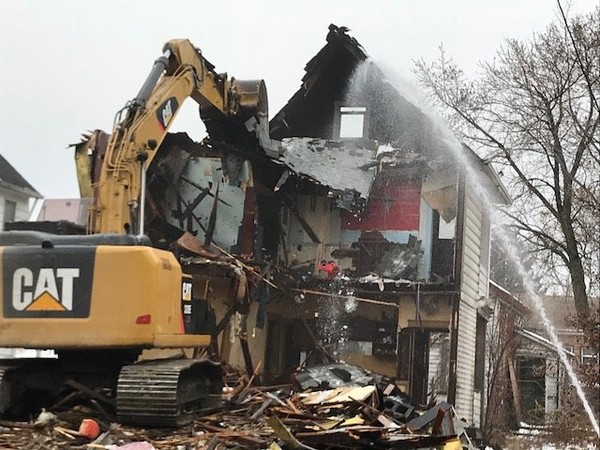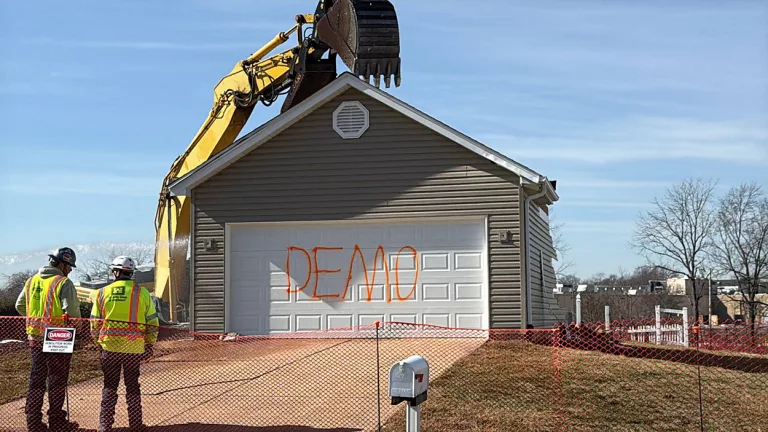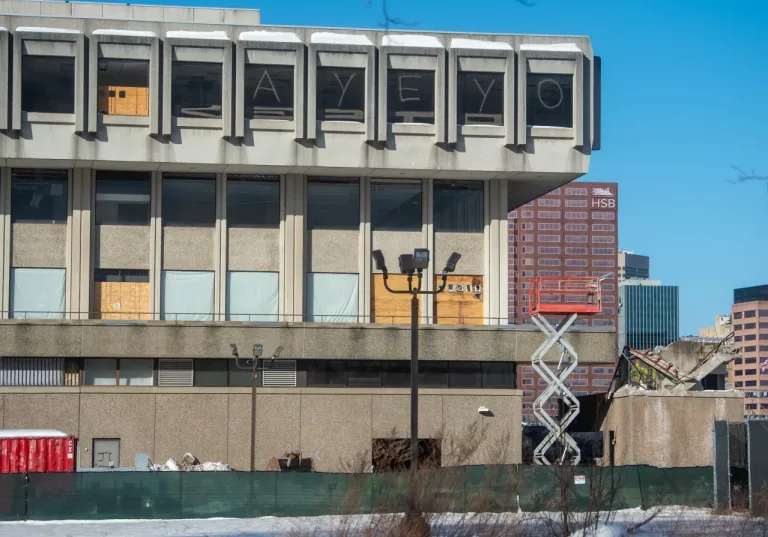
You can’t end blight in Detroit by knocking down all the blighted homes, not without addressing the conditions that cause blight in the first place.
And one of the things that causes blight in Detroit is tax foreclosure.
Detroit has spent around $177 million to demolish around 11,000 blighted structures since 2014, work folks in the neighborhoods largely applaud. But without meaningfully reducing tax delinquency and tax foreclosure, demolition is like pouring money into a bucket with a hole in the bottom.
The state Legislature could do a lot to plug that hole by ensuring that Detroiters aren’t stuck paying years of back taxes they shouldn’t have been charged in the first place.
Wayne County — which is charged with auctioning tax-foreclosed Detroit properties each year in an annual sale — has touted its payment plans as a solution to the tax foreclosure crisis.
And it’s true that the number of tax foreclosures in Detroit have dropped about 88% since 2015. But the number of tax-delinquent homes has fallen by only 13%, according to an analysis published this year by the Quicken Community Fund, the philanthropic arm of mortgage lender Quicken.
Quicken’s researchers spoke to the owners of 24,089 of about 45,000 tax-delinquent occupied Detroit homes. What those researchers found was that about 75% of those tax-delinquent owners are eligible for the city’s poverty property tax exemption. If those homeowners had known they might be eligible for the exemption, they wouldn’t have owed property tax at all.
But city has done a terrible job of communicating that to its impoverished homeowners. In fact, last year Detroit settled a lawsuit over the poverty exemption brought by the ACLU, effectively conceding that it hadn’t done its part, and agreeing to make the process easier.
Yet even if each of those eligible homeowners received the exemption this year, it wouldn’t wipe out those back taxes, even if the homeowner qualified for the exemption in each of those previous years. Because delinquent taxes accrue for three years before a home can be foreclosed by the county, those homeowners may owe thousands in back taxes.
To make matters worse, some of those tax bills may have been based on illegal assessments — between 2009 and 2015, researchers have found, as many as 85% of Detroit homes were assessed at too-high rates.
And this is where the Legislature could help.
The tax-foreclosure auction is mandated by state law, just like the poverty property tax exemption. So the state Legislature could pass legislation enabling cities to make the poverty exemption retroactive, allowing Detroiters who should have been receiving the exemption for years to wipe out years of back taxes most can never hope to pay — and enabling those homeowners to pay for other important stuff, like water bills, or home repairs.
State Rep. Wendell Byrd (D-Detroit) has introduced legislation that would do just that. In past years, it hasn’t advanced.
But that may be changing.
Residential property tax revenue accounts for just 2.5% of the city’s budget; delinquent taxes are a fraction of that total. And for the most part, those tax-delinquent accounts are uncollectable: We’re talking about folks living in poverty, eking out monthly payments, and struggling to pay each subsequent year’s tax bill.
At the Detroit Regional Chamber’s Mackinac Policy Conference last week, I asked state leaders whether they’d heard of the retroactive poverty property tax exemption. Despite Quicken Vice Chairman Bill Emerson touting the Neighbor to Neighbor report in a keynote address the day before, most hadn’t.
That’s the bad news. The good news is, they seem to think it’s a fine idea.
Senate Majority Leader Mike Shirkey (R-Clarklake) says he tends to default to local control — the state’s enabling legislation would require local adoption — and that he’d want to know how wiping out years of back taxes would affect a city or county’s balance sheet. But he say making it easier for homeowners to stay in their homes, and to improve those homes, “is a laudable goal.”
State House Speaker Lee Chatfield, R-Levering, says he gets the issue and is willing to research it. House Democratic Leader Christine Greig, D-Farmington Hills, says she’s very interested in fixing the unintended negative consequences of policy, and that it’s important to put people first. Gov. Gretchen Whitmer says needs more information, but she’s sympathetic.
Detroit Mayor Mike Duggan, of course, is familiar with the retroactive poverty exemption. But it’s important, he said last week, to be fair to homeowners who have paid taxes.
At last week’s conference, Duggan announced that the city, which has nearly exhausted the federal funding that has paid for its demolition program thus far, plans to sell $200 million in bonds to pay for more demolitions. With those dollars, Duggan said, Detroit will be blight-free by 2024.
Money. Bucket. Hole.
Nancy Kaffer is a Detroit Free Press columnist. Contact: nk*****@*******ss.com.




